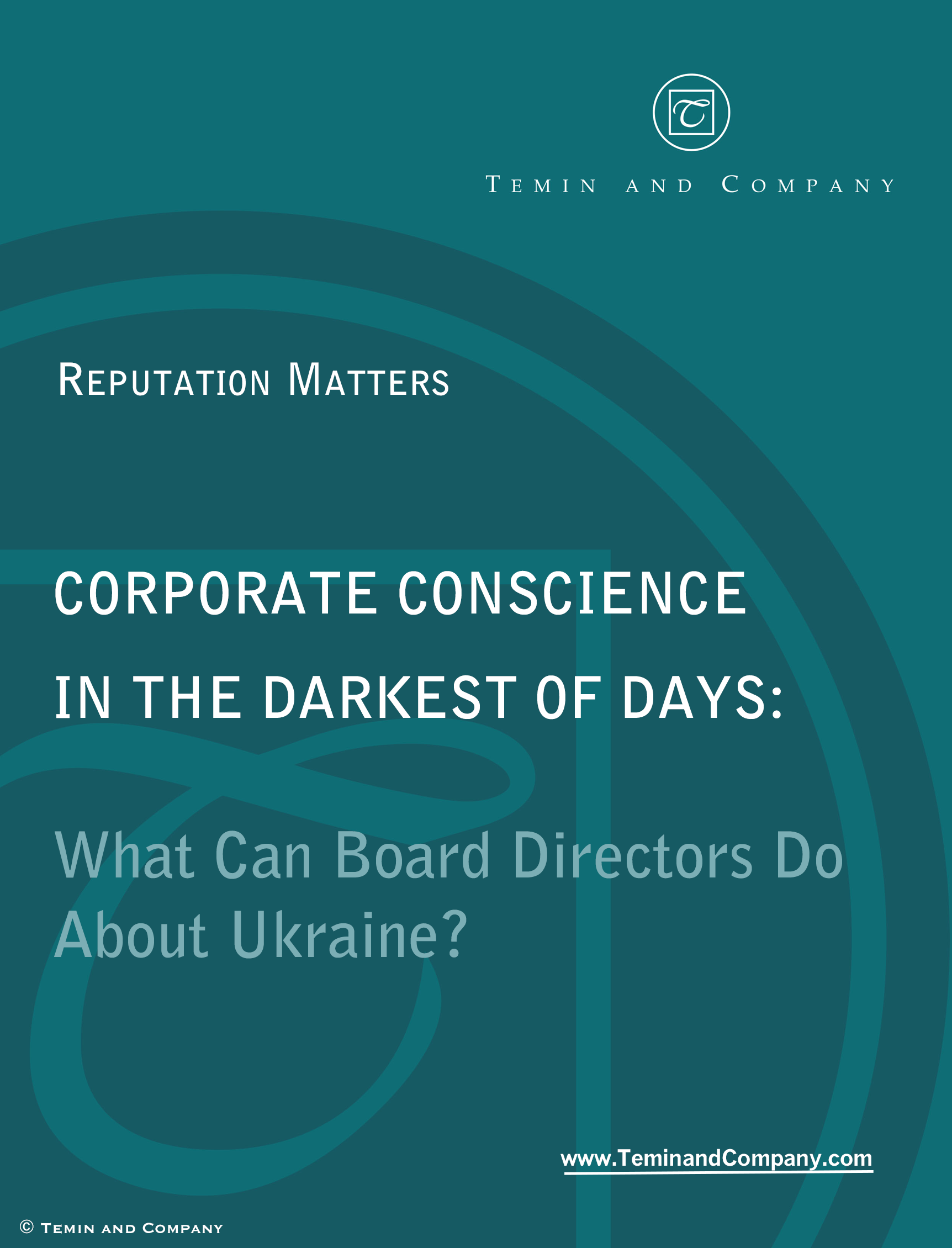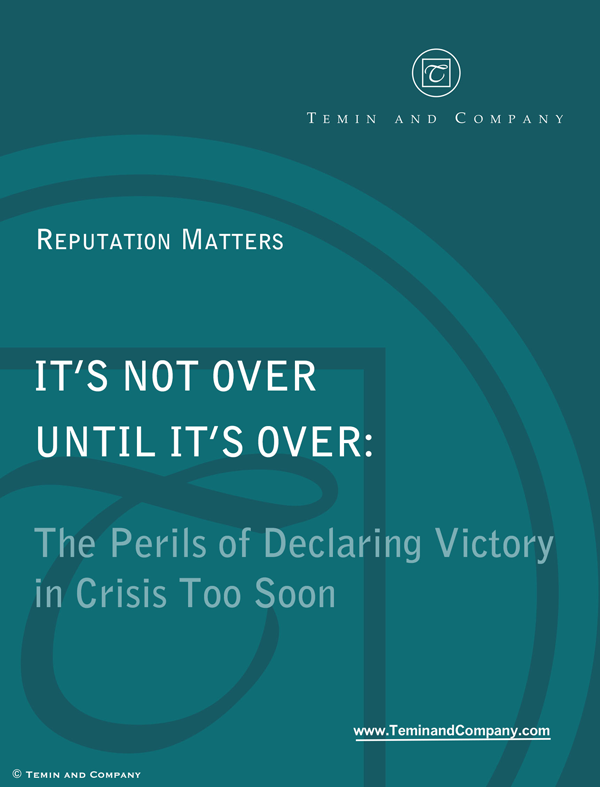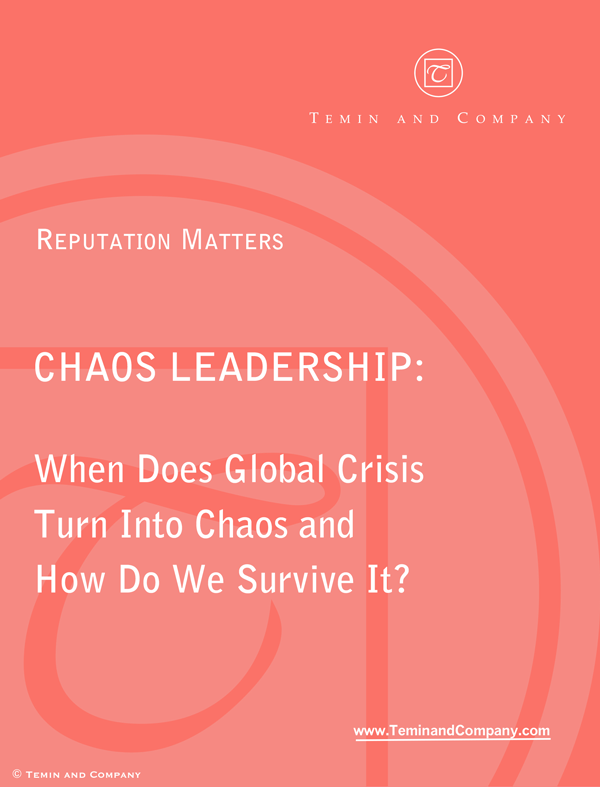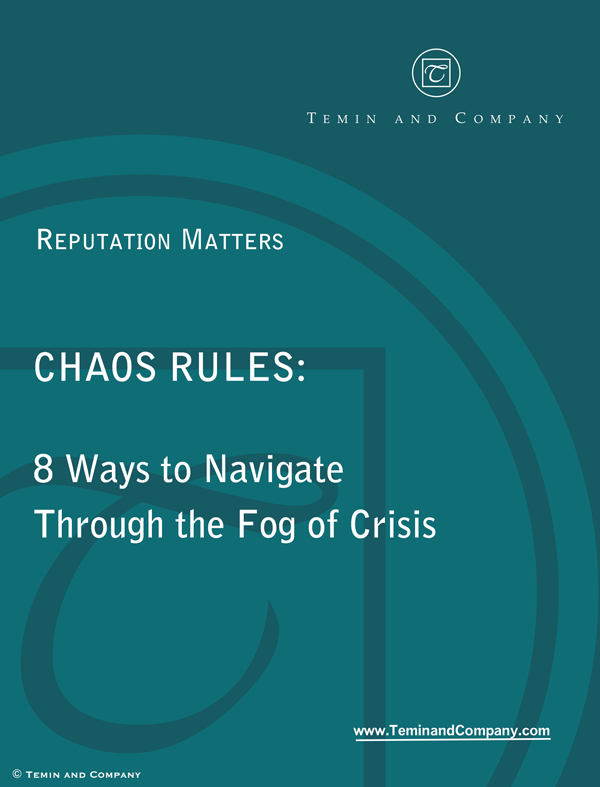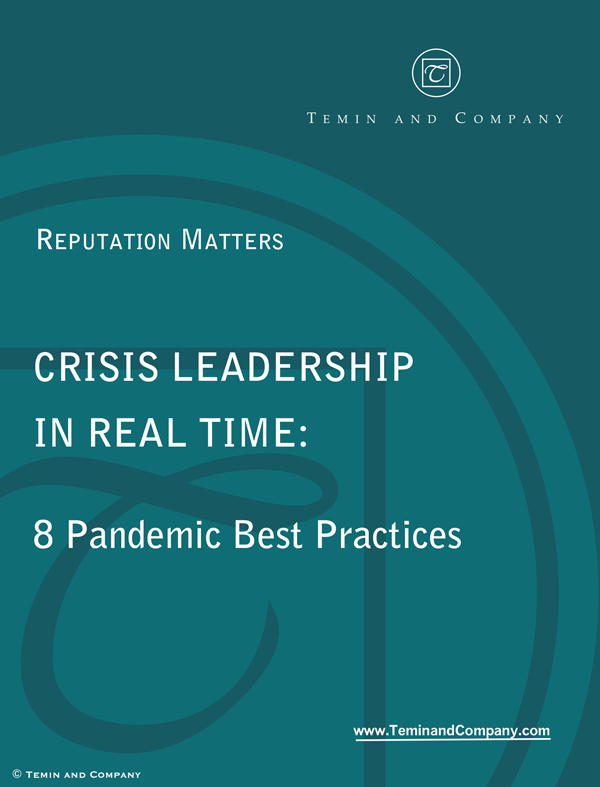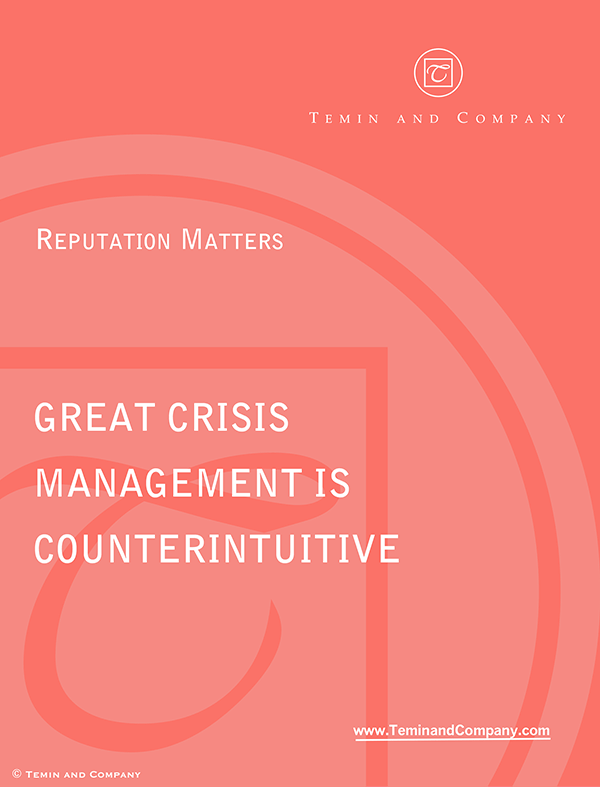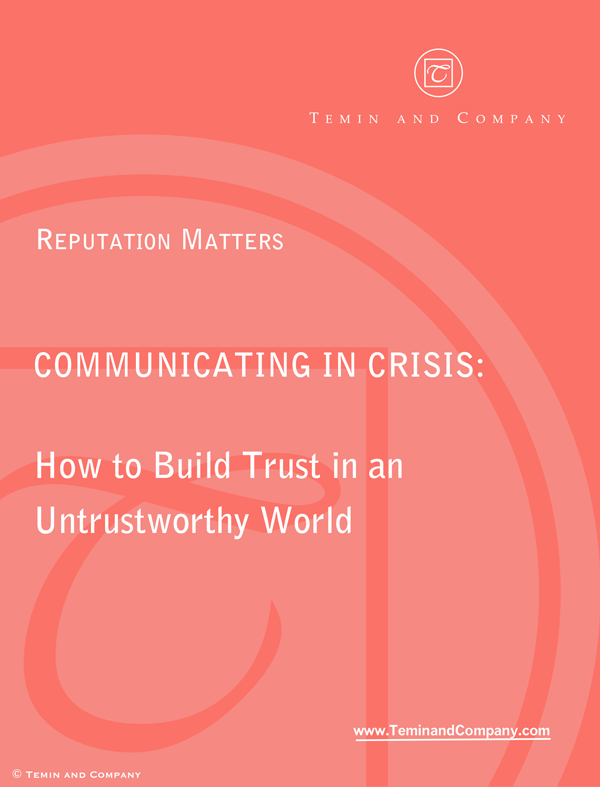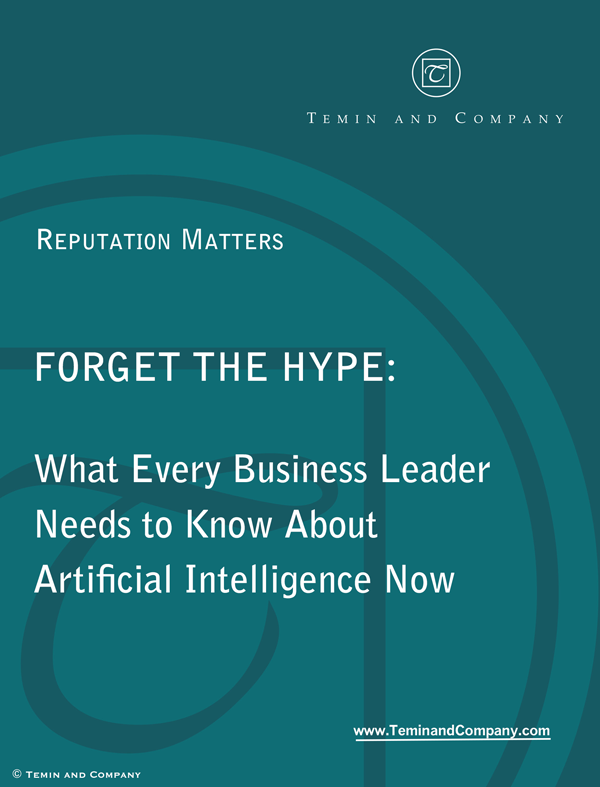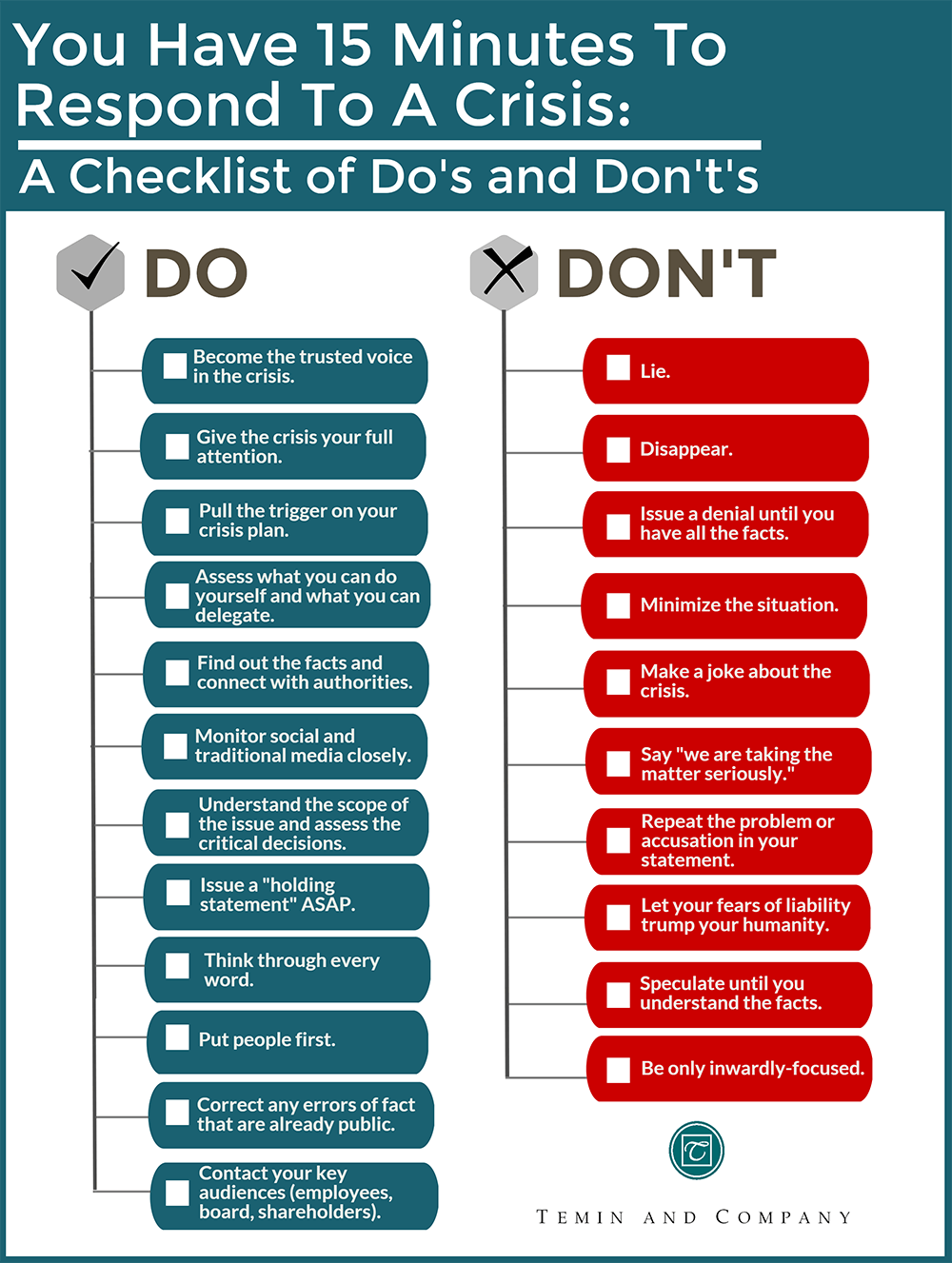Thought Leadership–Crisis Articles
White Papers»
"Reputation Matters" White Papers seek to offer deeper insight on a wide range of topics we help clients address.
Resilience — New Research Helps Us Bounce Back Quicker, Better From Life’s Trials And Tragedies
Leadership, “Reputation Matters” Forbes, August 31, 2015
How do we become more resilient leaders, executives, entrepreneurs, parents, people? Here’s a quick checklist, informed by new brain research:
- Practice overcoming hurdles in everyday life
- Have a purpose
- Accept reality with a positive attitude
- Learn how to improvise
- Meditate (mindfulness training)
- Exercise
- Develop an abiding sense of humor
- Build strong support networks
- Look for role models
- Keep your mind flexible
- Face your fears
- Reframe
- Nurture a strong sense of self
- Know when to be kind to yourself
- Be compassionate
Resilience is a concept that exists in almost every culture around the world: the ability to bounce back from adversity, from whatever setbacks life deals you, in order to come back and conquer another day.
Resilience has been the Holy Grail for those individuals or organizations that have gone through crisis and adversity and want, literally, to “get their lives back.”
But while it has always been known that some people, and some organizations, recover better than others, new brain and behavioral research is now shedding some light on why. Even better, it is showing that we can cultivate resilience in ourselves before we even need it. […read more]
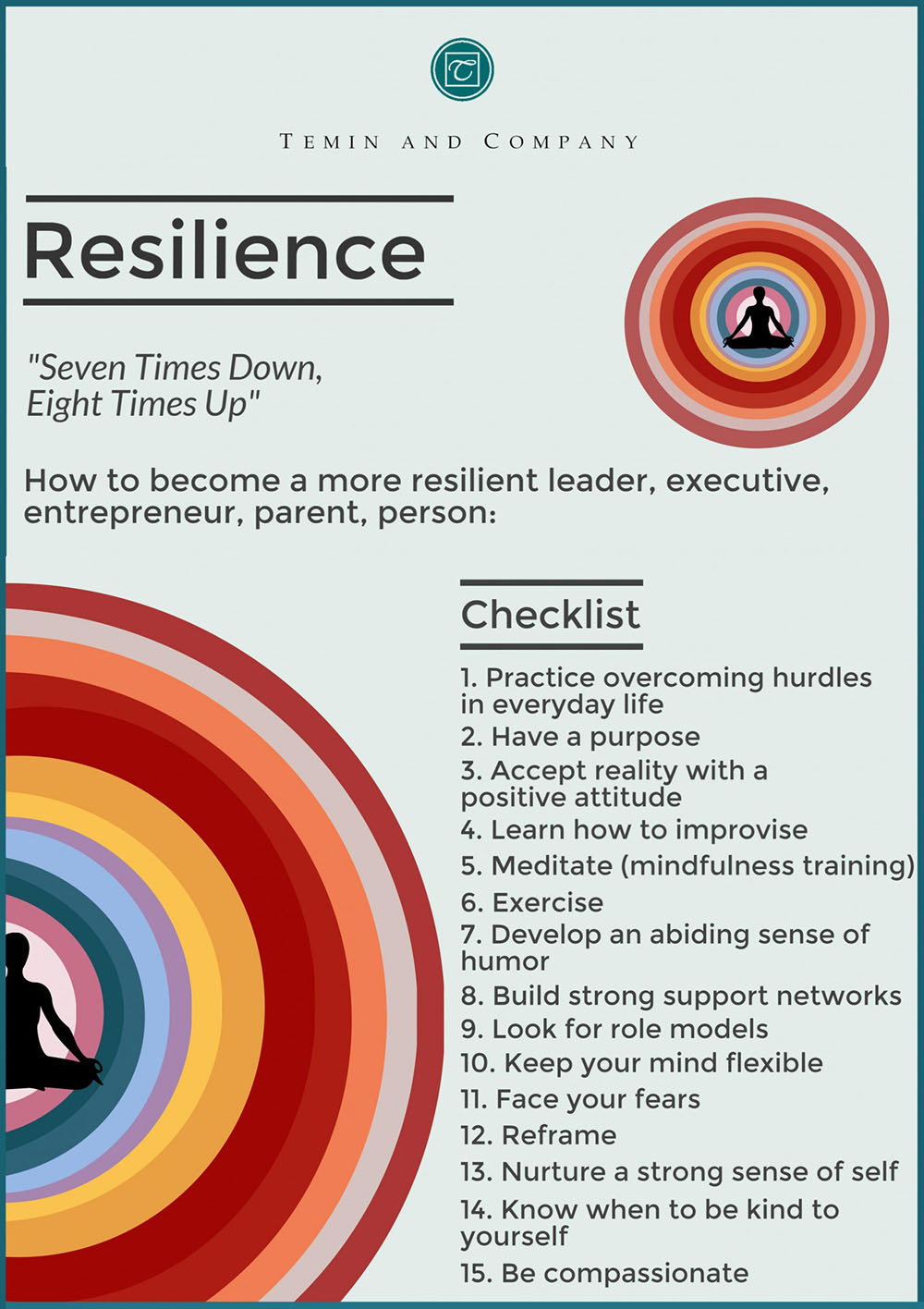
Airbnb Meets The Bates Motel: Crisis Lessons For The Overly Trusting Traveler
Leadership, “Reputation Matters” Forbes, August 17, 2015
“Never get into a car with a stranger” my mom told me throughout my childhood. “Don’t trust your safety to someone you don’t know really well, and even then be vigilant, because they may not have your best interests at heart the way we do.”
But how does this old-school advice jibe with the Airbnb, Uber, “sharing economy” generation who are driven by unlicensed strangers and stay in people’s — who they don’t know — homes around the world? What happens when your Airbnb host turns into Norman Bates? (Or your guest turns out to be the Zodiac killer?)
It is indefensible how ill-prepared Airbnb, Uber, and a host of other high-flying, trust-based sharing companies are for crisis, and customer and provider protection when trust goes awry. It is equally shocking how unprepared their trusting customers and providers are when they realize their trust is misplaced.
“Trust is hard won but easily lost,” the saying goes. But in the new sharing economy, it actually might be the exact opposite: trust is too easily given, and too hard lost. And the lessons, to individuals as well as companies, are tough ones. So, what lessons should companies, and the consumers who patronize them, learn? […read more]
You Have 15 Minutes To Respond To A Crisis: A Checklist of Dos And Don’ts
Leadership, “Reputation Matters” Forbes, August 6, 2015
When a crisis hits, how you respond in the first 15 minutes can make or break your organization – and your reputation.
While we all know that crisis management training is critical for leaders and boards today, much of it still tends to be shopworn, focusing on the lessons of yesterday. The new climate of ultra urgency is rarely emphasized sufficiently.
Yet I have found that in those first 15 minutes of a crisis your response must be exactly the right message, delivered in exactly the right words, to the right audiences, in just the right way – or you will have to deal with your mistakes for days, weeks, even months to come.
Immediate response and indelible accountability – that’s a tall order for any leader. […read more]
Kindness Amidst Conflict: Respect Across Diversity
Leadership, “Reputation Matters” Forbes, April 30, 2015
Have you noticed how the world is getting meaner and meaner? Not just over social media, prime time television, or the legislative process, but everyday — as authority becomes less trustworthy, and attacks against leaders, as well as anyone who seems “different,” turn more personal, ugly and destructive.
If I don’t “like” what you have to say, or you disagree with me in any way, I can take to Yik Yak, or almost any social media platform, and anonymously damn you to hell and back. Or worse. […read more]
Staying Ahead of the Game: The Steps to Effective Crisis Communications Planning
PR Newswire, March 12, 2015
Don’t wait for a crisis to hit before considering your communications strategy. Getting caught off guard can mean the difference between success and failure, especially if your competitors are quick to respond. Take action today to ensure tomorrow’s stability.
View PR Newswire’s on-demand webinar to obtain the tips and tools needed to craft an effective crisis plan. Davia Temin, CEO, Temin & Co. and Colleen Pizarev, VP, Communications Strategies, PR Newswire discuss: creating a crisis plan and messaging effectively; the role of boards in crisis; listening best practices and your social media response. […read more]
View the slides:
The Botched Interview: Sony’s Flawed Crisis Response
Leadership, “Reputation Matters” Forbes, December 29, 2014
Indecisiveness is rarely a winning response in crisis. But in the case of Sony ’s handling of The Interview I fear that the leadership problem is more than that. It involves knowing — or not knowing — exactly what guidance to listen to, and what decisions to make before, during, and after a crisis occurs. No waffling is allowed.
In a series of moves that seem as if they were actually taken from the ill-fated movie itself, Sony has exhibited not only a lack of judgment, but a seeming propensity to cave, successively, to each strong opinion that has been thrust upon it. And there have been a lot this holiday season.
First the highly ill-advised movie advocating the murder of an actual living person was green-lighted – we assume due to pressure from powerful Hollywood players. (Hadn’t they heard of the fictionalized movie countries of the Duchy of Grand Fenwick in The Mouse That Roared or Sarkhan in The Ugly American?) Then when a devastating cyberhack, possibly from the country ruled by that actual living person, caused the entire studio – and its employees – to pay dearly for the decision, there was stunned silence. The hackers’ subsequent illegal release of mortifying emails showing off the industry’s underbelly prompted a tepid apology, and possibly a willingness to acquiesce to the hackers’ demands before more emails were released. And finally, when the hackers appeared to threaten violence to movie-goers, and major theater chains announced they would not show the film, Sony pulled it for good. So they said.
But now, in the face of the administration’s objection to a foreign government threatening our freedom of speech, and the willingness of some smaller theaters to show it, thereby bringing in some revenue, it’s baaaaaack. My head is spinning faster than that girl’s in The Exorcist. […read more]
The Role Of Boards In Crisis: 10 Steps For Directors Before, During And After Crisis
Leadership, “Reputation Matters” Forbes, October 8, 2014
We see it every day in our headlines: as crisis has become a new global norm, the board’s responsibility in crisis is changing rapidly.
No longer is plausible deniability acceptable, either for boards or for management. Corporate and nonprofit boards alike are expected to know of problems that are brewing deep within their organizations. And they are expected to act upon that knowledge swiftly. The public, shareholders, and media are holding boards responsible for corporate missteps as never before, and therefore the role of governance leading up to, during, and after crisis is transforming as we speak. […read more]
Mary Barra’s Defining Moment: Can GM Become The Next Tylenol?
Leadership, “Reputation Matters” Forbes, April 2, 2014
Leaders rarely get to choose their defining moments. The issues that will eventually define their reputations are most often thrust upon them…and usually those issues are far, far different from what the leaders would have chosen if it were up to them.
And so it is with Mary Barra. Only three months into her CEO stint at General Motors, her defining issue has found her; and it is a crisis that she most certainly did not choose.
When departing CEO Dan Akerson announced why he had recommended Ms. Barra for CEO, he said that she had an uncanny ability to “make order out of chaos.” Today we surely wonder if he had any inkling of just how much chaos there would be in her first 100 days. Let’s hope he did not. […read more]
Target’s Worst PR Nightmare: 7 Lessons From Target’s Well-Meant But Flawed Crisis Response
Leadership, “Reputation Matters” Forbes, December 30, 2013
Target is living up to its name in a way I am sure they never meant to do.
They have become the newest target case of how not to respond in a crisis. Although they have done many things right in their response to the second-largest retailer data breach on record, they have made some classic mistakes that have not only compromised their reputation, but the trust of their customers, employees, and the public.
In fact, by needing to retract on Friday earlier assurances to customers that their PIN numbers had not been stolen, Target effectively has morphed in the eyes of the public from a victim of crime to a co-conspirator. Not a good move brand-wise, trust-wise, reputation-wise, or business-wise. […read more]
How NOT To Handle A Crisis: XO Communications’ Monumental Fail
Leadership, “Reputation Matters” Forbes, September 7, 2013
We’re a small business. They tell us that we are the backbone of the American economy. What do we need to compete and win at this challenging moment in time? (And they are all challenging of course.) Wonderful, smart people? Check. A valuable, viable business proposition and a record of success? Check. A profound care for our clients and an indefatigable work ethic? Check. A great website, superb intellectual capital, a highly responsive, real-time communications strategy? Check, check, check.
And a reliable, customer-friendly Internet Service Provider to host our email and point folks to our website? NO CHECK!
In fact, our ISP — one that specializes in small businesses — has had three systemic outages in 2 months, leaving us — and a huge percentage of small businesses in America — high and dry.
XO Communications is breaking every crisis management rule in the book. […read more]
White Papers»
"Reputation Matters" White Papers seek to offer deeper insight on a wide range of topics we help clients address.




